Self-Care 101: The Essential Role of Setting Boundaries
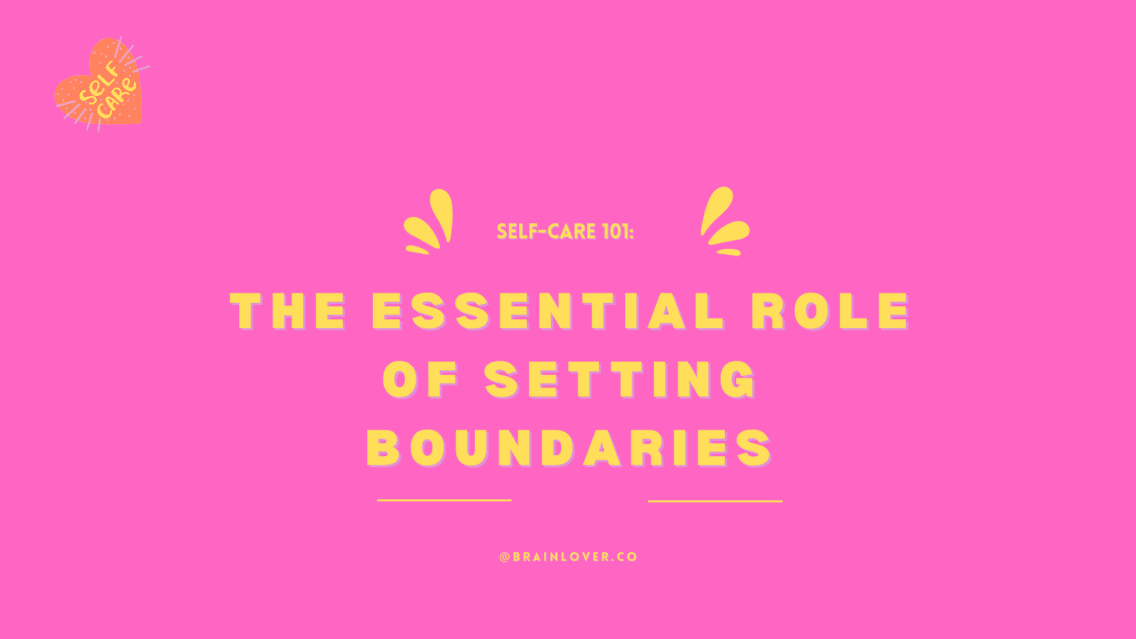
The Essential Role of Setting BoundariesIn the rush of everyday life, we often sideline self-care. A key yet usually neglected aspect of self-care is boundary-setting.
Whether declining additional work tasks or reserving time for personal needs amid familial and social pressures, drawing boundaries is fundamental for safeguarding one’s psychological, emotional, and physical health.
Let’s explore the significance of boundaries in self-care and how to incorporate them into your daily routine.
Understanding the Connection Between Self-Care and Setting Boundaries
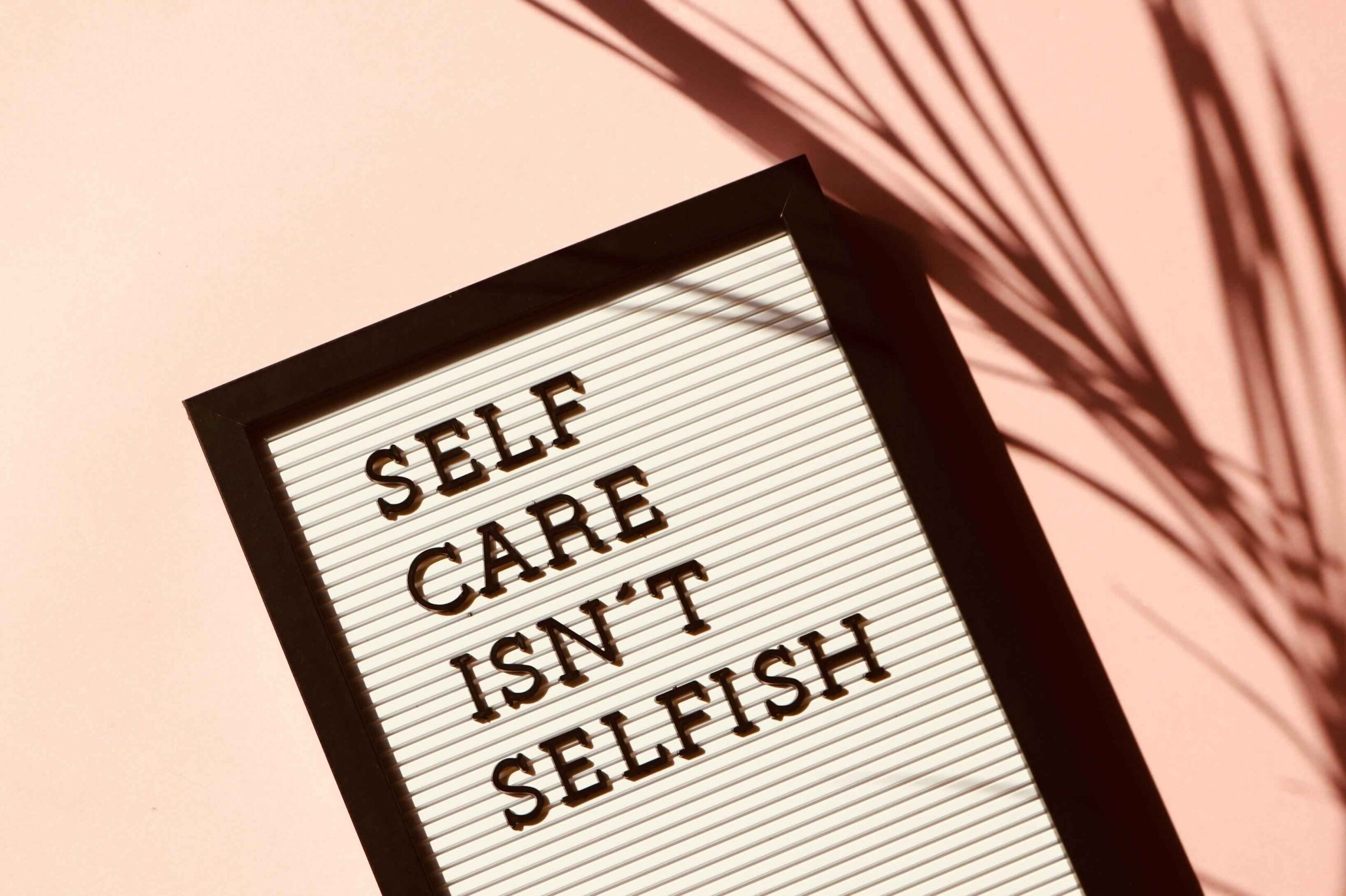
Self-care is more than just an indulgence; it’s a vital practice ensuring your well-being is a priority.
At the heart of self-care lies the crucial practice of setting boundaries, which serves as a protective barrier for your emotional, mental, and physical health.
This delineation enables individuals to honor their unique needs, feelings, and limitations, thereby avoiding the pitfalls of overcommitment and self-neglect.
By establishing boundaries, you consciously decide to respect your capacity and refrain from allowing external pressures to drain your energy reserves.
It’s about understanding that to be your best self, you must allocate time and space for rejuvenation and self-reflection.
Moreover, setting boundaries encourages a healthy respect for your values and time, asserting that they are essential and non-negotiable.
This reinforcement of personal limits is essential in creating a balanced life where self-care is an occasional luxury and a consistent practice.
Establishing clear boundaries empowers individuals to make deliberate choices about what they let into their lives, ensuring that their actions align with their overall well-being and self-care objectives.
The Different Types of Boundaries Essential for Self-Care
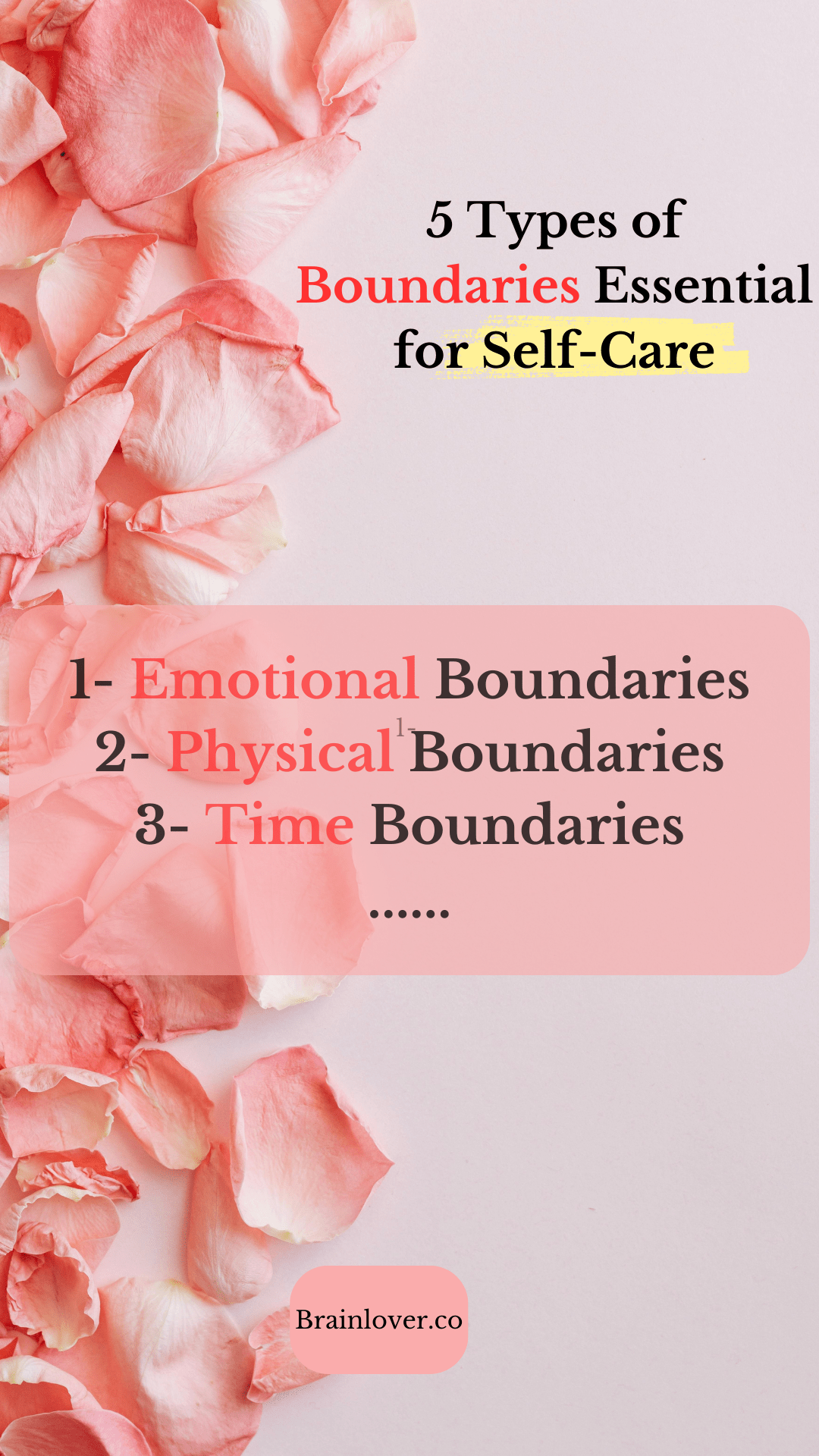
To fully embrace self-care, it’s imperative to understand and establish various boundaries that cater to different aspects of our lives.
Each type serves a unique purpose in protecting and nurturing our well-being.
- **Emotional Boundaries**: These safeguard your emotional health. Setting emotional boundaries means not absorbing the emotional turmoil of others or letting their emotions dictate your feelings, enabling you to maintain emotional stability.
- **Physical Boundaries**: These pertain to your personal space, body, and physical needs. It involves making decisions that respect your physical well-being, such as declining invitations that could compromise your health or asserting your comfort with physical touch.
- **Time Boundaries**: Time is a finite resource, and setting time boundaries ensures that you allocate it wisely across various life facets—work, leisure, and rest—without one aspect monopolizing your time at the expense of others.
- **Intellectual Boundaries**: Intellectual boundaries involve respecting others’ thoughts and ideas. It’s about allowing for the exchange of differing viewpoints without feeling diminished or coerced into agreement.
- **Digital Boundaries**: Setting digital boundaries is vital in an era where digital consumption can easily overwhelm. Limiting the time spent on electronic devices and social media helps prevent information overload and protect mental health.
By recognizing and implementing these boundaries, you create a foundation for a holistic self-care regimen that respects and nurtures all dimensions of one’s being.
How Lack of Boundaries Can Lead to Burnout
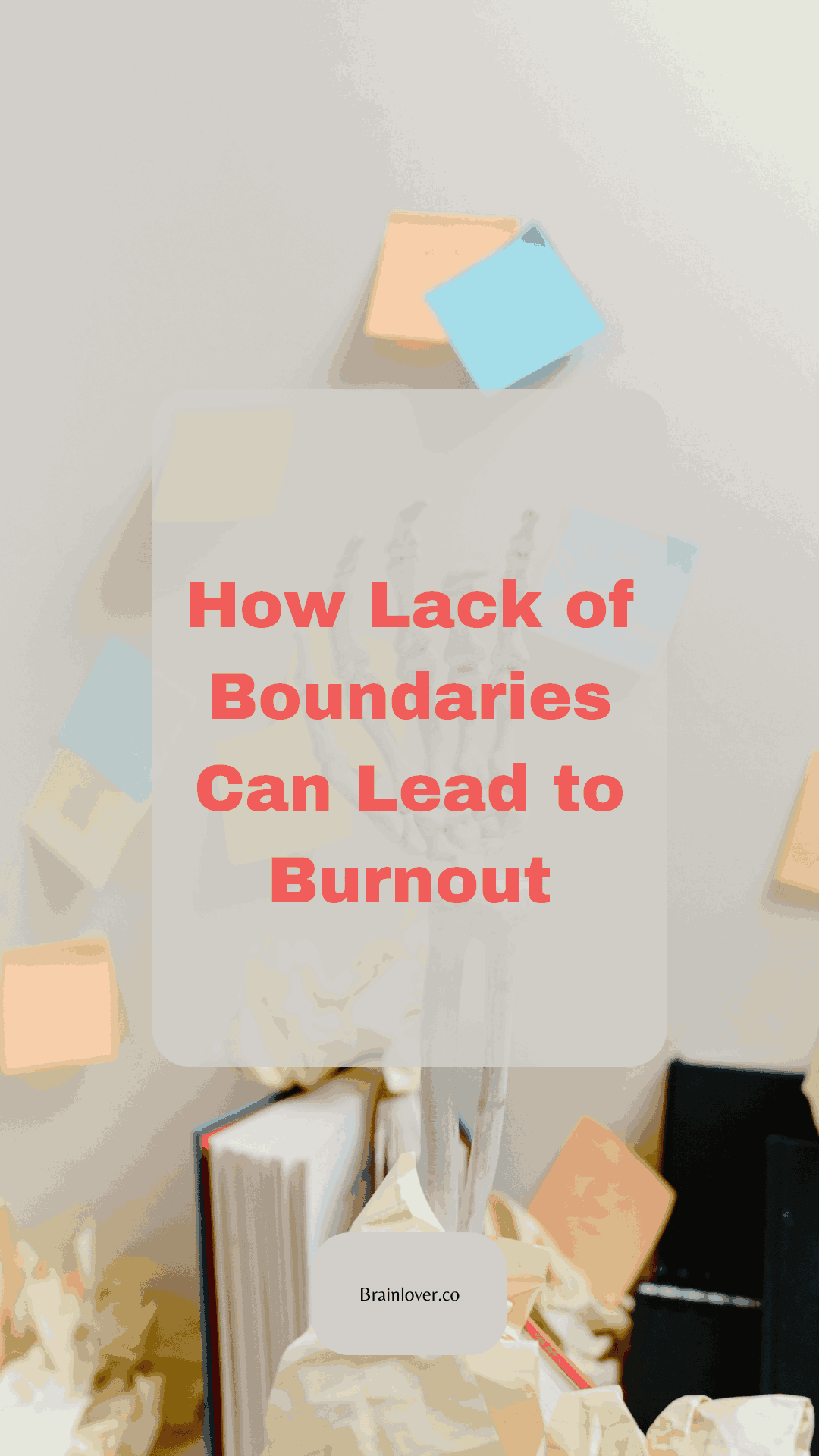
When individuals fail to set personal boundaries, they often find themselves catering to others’ needs and expectations at the expense of their desires and priorities.
This can lead to burnout, a profound exhaustion that undermines one’s sense of accomplishment and triggers detachment and cynicism towards oneself and one’s duties.
The lack of boundaries allows stress to persist, draining emotional and physical energies.
This pervasive stress impairs cognitive functions, undermining productivity and creativity and fueling burnout.
The continuous pressure of trying to meet limitless demands without self-care or reflection can damage relationships, causing individuals to become embittered or withdrawn, devoid of energy for meaningful engagement.
The harmful effects of a boundary-less existence silently sap an individual’s energy and passion, leading to a perpetual state of fatigue and alienation from their own life and values. Without the safeguarding structure that boundaries offer, individuals become susceptible to the unyielding demands of the outside world, creating a fertile ground for burnout to grow and thrive.
Therefore, setting personal boundaries is crucial to leading a fulfilling life, maintaining healthy relationships, and avoiding burnout.
Practical Steps to Setting Healthy Boundaries for Self-Care
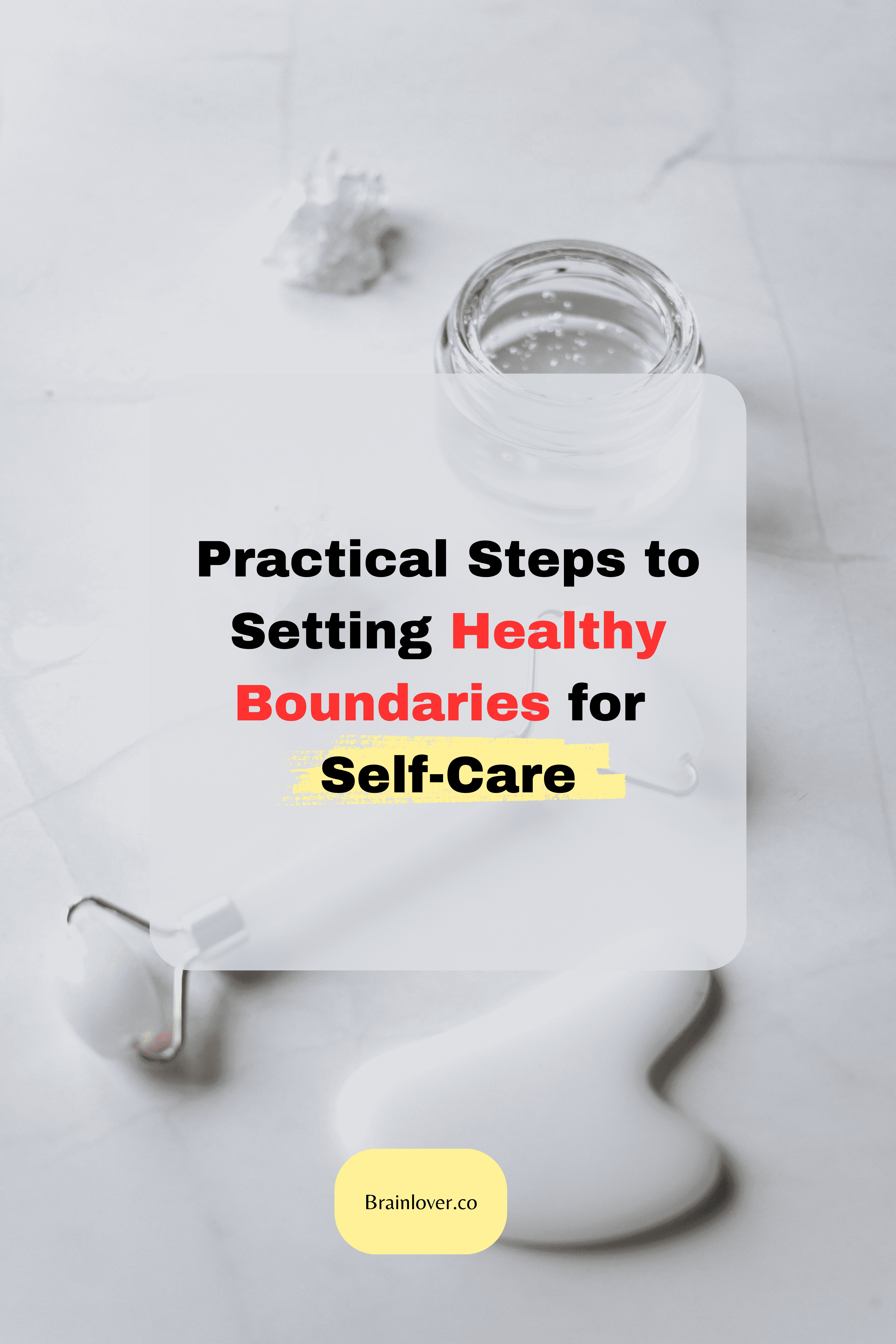
Initiating healthy boundaries begins with introspection; reflect on your personal needs and levels of comfort to identify areas in your life where you experience pressure or discomfort.
Once identified, articulate your boundaries with confidence and kindness, ensuring your limits are communicated clearly.
For instance, if you feel overwhelmed by your workload, you might tell your boss,
“I need to focus on my current projects and cannot take on extra tasks now.”
Or, if you need more personal space, you might tell a friend,
“I value our time together but need some quiet evenings.”
Start with setting minor limits and gradually expand them as your comfort with boundary-setting grows.
When your boundaries are tested, cultivate self-awareness by paying attention to how you feel—emotionally and physically.
This awareness will guide you in fine-tuning your boundaries as needed.
Master the art of a respectful ‘no,’ understanding that you’re not obligated to justify your decisions to anyone.
Remember, saying ‘no’ to overcommitments allows you to say ‘yes’ to your well-being and prioritize a lifestyle centered on self-care.
Through these practical steps, you lay the groundwork for a balanced life that respects your needs and fosters personal growth.
The Role of Self-Compassion in Setting Boundaries
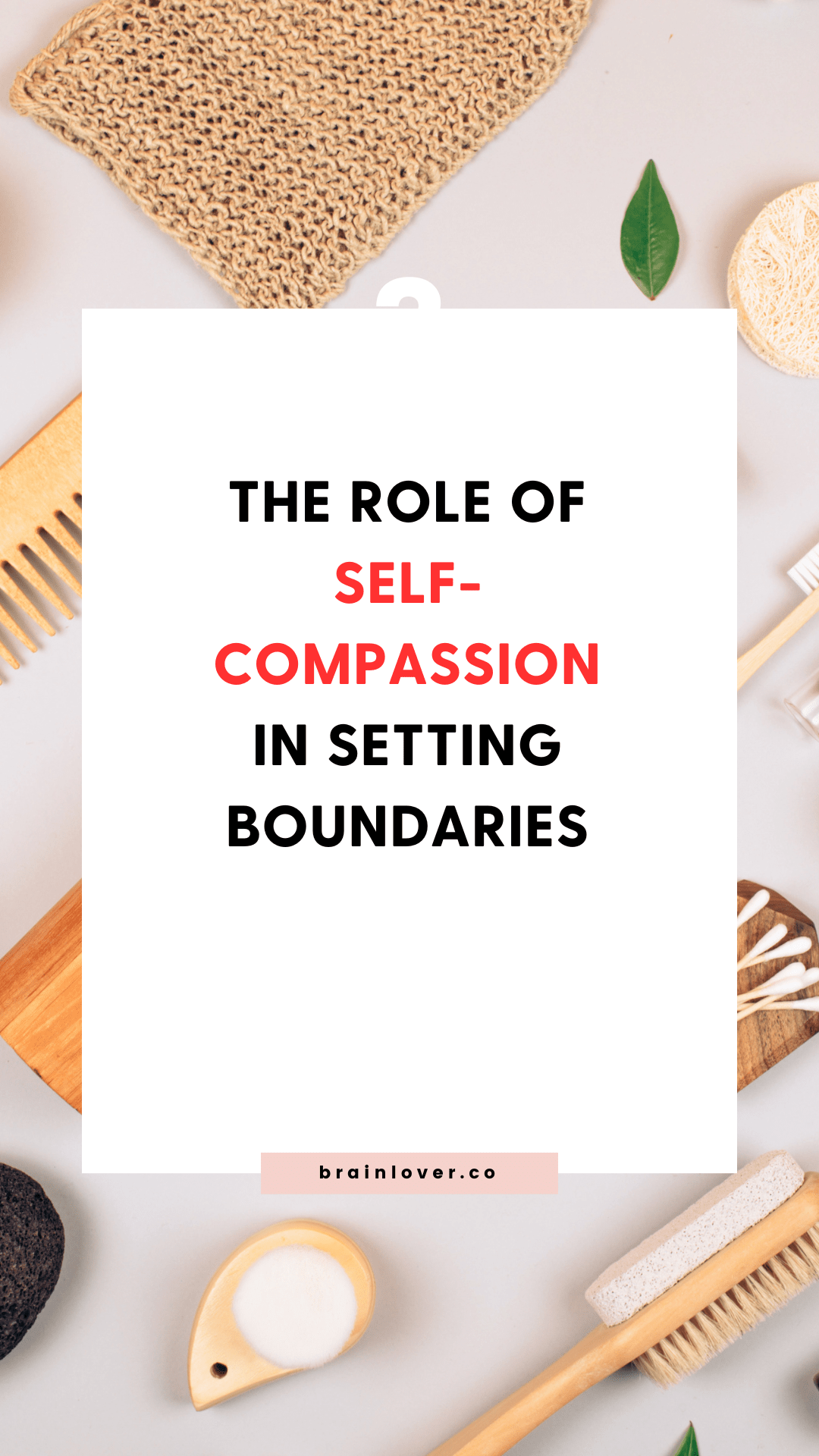
Cultivating self-compassion is crucial when forming boundaries that promote self-care.
This mindset encompasses acknowledging and prioritizing personal needs and setting restrictions are ways of being kind to oneself.
Being compassionate with oneself implies recognizing the inherent unease that may accompany setting boundaries, particularly in societies that frequently valorize self-sacrifice.
Nonetheless, constant reassurance that taking care of personal well-being is not merely an option but an inalienable right is pivotal.
A further dimension of self-compassion includes forgiving oneself for any difficulties experienced in adhering to set boundaries.
The realization that boundary establishment is an ability that necessitates gradual mastery and tolerance enables a soft, lenient perspective.
Considering each successful instance of boundary assertion, regardless of their magnitude, commemorating these small victories has proven beneficial.
This habit generates positive correlations with setting boundaries and improves confidence in personal capabilities to safeguard individual space and vitality.
Moreover, self-compassion plays an instrumental role in managing feelings of guilt stemming from declining requests or causing dissatisfaction in others.
It’s all about confirming to oneself that by respecting personal limits, one isn’t exhibiting selfishness but rather ensuring the ability to present oneself honestly and optimally in any setting.
Cultivating such empathetic self-talk reinforces resistance to external strains and underlines the role of boundaries in fostering a healthy, self-respecting rapport with oneself.
The Long-Term Benefits of Maintaining Strong Boundaries for Self-Care
Establishing and maintaining boundaries can have significant, enduring benefits that bolster well-being.
Among the most striking outcomes is an increase in self-esteem and confidence.
Sticking to one’s boundaries reinforces a sense of self-worth and exhibits a devotion to personal beliefs and health.
This decisive act promotes empowerment, underlining an individual’s influence in sculpting their life to cater to their unique needs.
Transparent and constant boundaries are fundamental for healthier interactions in interpersonal relationships.
These guidelines relay expectations, creating a milieu of reciprocal respect where everyone recognizes and respects each other’s requirements and personal space.
This explicitness curtails potential misunderstandings and disagreements, deepening bonds and elevating the standard of interactions.
Another advantage of having defined boundaries is the reduction of burnout risks.
Setting clear boundaries around professional tasks, social commitments, and private time ensures that essential periods for relaxation and rejuvenation are available.
Striking this balance is crucial to preventing the fatigue and disenchantment typically associated with burnout. Instead, it promotes a viable lifestyle, conserving vigor and zeal.
Over time, setting and upholding boundaries bolsters an individual’s resilience, allowing them to handle life’s hurdles with increased ease and certainty.
This conscious approach to self-care, rooted in robust boundaries, lays the foundation for a life abundant in satisfaction and harmony with one’s authentic self.









